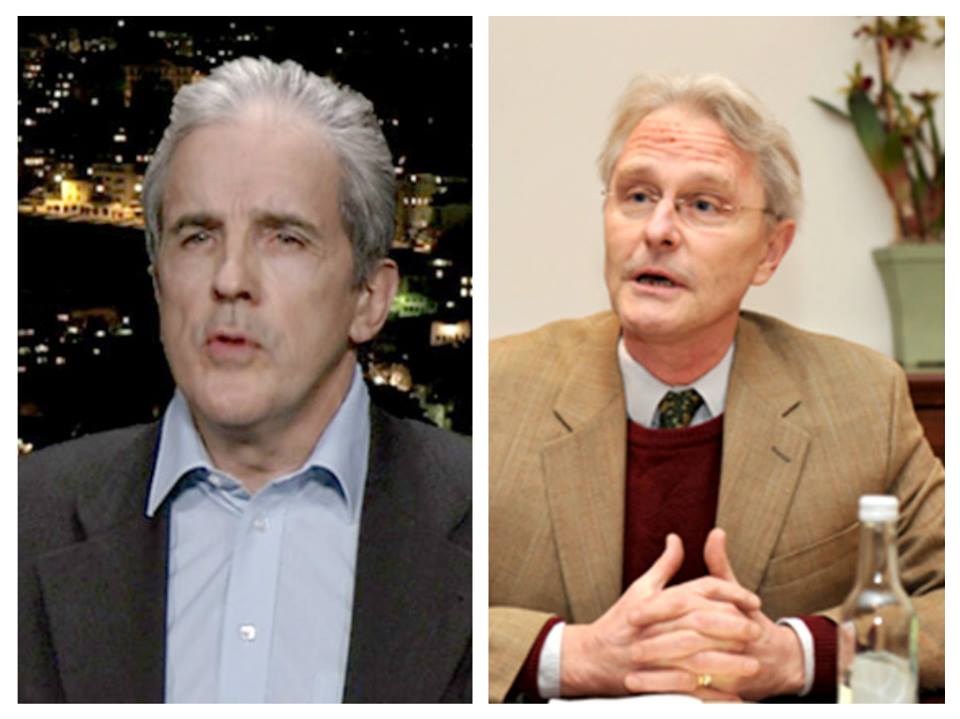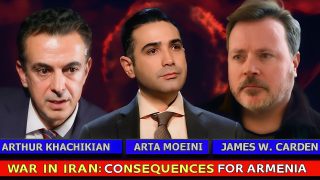What will happen in Hamburg and at which stage is NK settlement process?

At OSCE ministerial summit to be launched in Hamburg on December 8-9 issues on European security, NATO’s defensibility enhancement, implementation of decisions made at Warsaw summit will be covered. As recently German FM Frank-Walter Steinmeier said OSCE intends to strengthen its own defensibility. “We’ll attempt to give a signal on reduction of conventional arms,” Steinmeier said. By this summit OSCE German chairmanship will be suspended, which will be passed on to Austria next year.
Germany intended to record progress against the background of Russia-West sharpening in conflicts which generated near Europe, including that of NK. Not accidentally, parallel to the topics on European security strengthening, a meeting within OSCE MG is anticipated between the co-chairs and Foreign Ministers of the parties to the conflict, although there is no clarity yet on launching a meeting.
Neil Macfarlane, professor of International Relations at Oxford University, specialist on Russia and the South Caucasus, PhD in political science, told “168 Hours” that chairmanship of the countries in OSCE shouldn’t be highlighted, as the co-chairs are led by general OSCE priorities, which is provision of security and stability. He assures this is the priority of OSCE and of each co-chair assuming the chairmanship.
“Any co-chair intends to record victory during its chairmanship, and Germany is an ambitious country. To say, that this year it succeeded to raise Europe’s security, will be not correct. In Europe, Eastern Europe, where there is a Russian threat, the issue of security strengthening has come out particularly after the developments in the Ukraine. Currently the Western community attempts to be ahead of the developments and provide security of Poland and Baltic countries by deploying NATO’s multinational battalions. However, parallel to such steps, the issue of maintenance of sanctions is being touched upon, restraining role of which Europe really feels,” the British political scientist said.
In his turn, Nicolas Hayoz, Associate Professor at University of Fribourg, political scientist, positively assessed Germany’s role as an OSCE co-chair, stating that Germany always attempted to become a bridge between Russia and the West. According to him by Germany’s chairmanship it became possible to mitigate Russia’s tough position in the Ukrainian crisis. Although he considers that negotiations were successful, it would be wrong, as there were no concessions.
“Hamburg summit is a working meeting, likewise meetings are held every year, which provides the opportunity to share with the process of decision-making, acquisitions, losses. However, I consider, the biggest surprise of this year was the NK conflict outbreak. The conflict was qualified in Europe as frozen, almost forgotten, outbreak of which was a shock to Europe,” the political scientist said.
Reflecting to the possibility of Hamburg meeting, he stated that the second Karabakh war is a proof, a fact, that negotiations don’t have the right to be suspended. “OSCE MG co-chairs should propose meeting, at least temporary solutions to the sides. Such an action was installation of investigative mechanisms and expansion of liabilities of OSCE representative. This would provide the opportunity to OSCE, in particular, to the Minsk Group, to work addressable, which is claimed by the parties to the conflict themselves. Parallel to this it would provide the opportunity to impose sanctions and other means towards the side, which violates the ceasefire, established in 1994.
However, I think one of the sides seems to be against these activities on the contact line, as it doesn’t exclude conflict settlement through force, which it openly states. In my opinion, exit from ongoing situation is urging installation of mechanisms, as without it negotiations won’t be launched, moreover, the risk of military operations will increase,” Nicolas Hayoz said. Regarding the statements by Azerbaijani president Ilham Aliyev that international right isn’t a factor, but the force is, and the Azerbaijani side will return its “historical lands,” the analyst said that it’s rhetoric.
“Likewise comments are heard from time to time by Azerbaijani leadership, however, it’s as clear as the day, that one of the sides interested in non-resumption of war is Azerbaijan, which is plunged in economic issues, crisis, a serious wave is growing inside the country conditioned by raise of tariffs, which is also regarded in this context, and resumption of war is a matter of serious resources. I assure that Azerbaijan hasn’t plans for a lasting war, that’s why the possibility of a blitzkrieg is frequently being touched upon, as there are no war resources,” Hayoz said.
Neil Macfarlane also considers that neither the sides, nor the mediators observe an alternative to negotiations. “I consider, even if the sides meet in Hamburg, we won’t edify any breakthrough, conflict history shows that frequent contact weakens tension and inspires hope to the settlement. New tendencies in the settlement aren’t observed, the sides can’t come to an agreement regarding the same issues—territorial integrity and right to self-determination. During those discordances power balance in the regions has changed. Azerbaijan starts to feel more confident, as it acquires powerful armaments through financial resources, however, it doesn’t feel so confident, which will allow it launching a wide-scale war, as drop in price for oil was a serious blow to Azerbaijan’s economy.
However, Azerbaijan continues expressing its discontent, which means the threat is still existent, in which we were convinced in April. Current situation supposes that escalations will be recorded until the main agreement between the parties to the conflict wasn’t reached. However, I’d like to mention here Russia as well. It will attempt to maintain the situation, which has always existed, i.e. it won’t allow a wide-scale war, which it did in April, although there was information that the Azerbaijani side has already made a decision to withdraw military operations,” the analyst said.
However, the British expert sees the exit. “There is no alternative to intensive negotiations. As a result of these very negotiations unexpected agreements will be reached, thus, the mediators should provide those dynamic negotiations not allowing any of the sides to toughen its position,” Macfarlane said.
By Araks Martirosyan

























